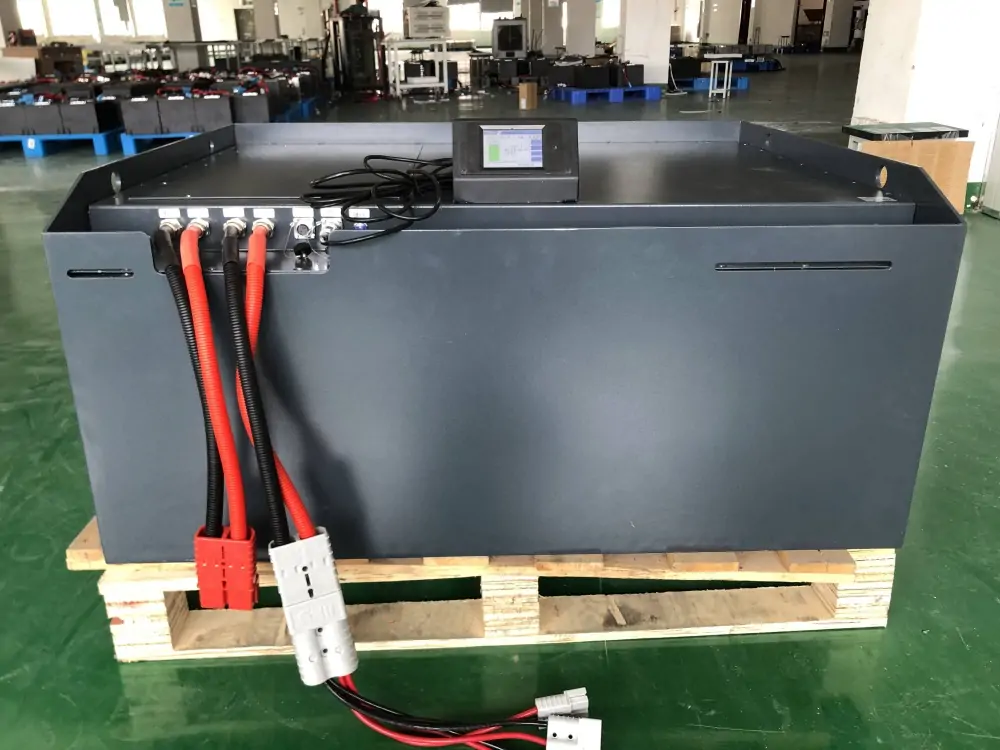Forklifts play a vital role in efficiently moving materials and maintaining productivity. These workhorses rely on robust batteries to provide the necessary power, and a reliable forklift battery charger is essential to keep them running at peak performance.

Importance of Forklift Battery Chargers:
Forklifts rely on rechargeable batteries for their operation, making forklift battery chargers a critical component in any warehouse or industrial setting. A well-maintained battery charging system ensures uninterrupted operation, reduced downtime, increased productivity, and enhanced safety for both operators and the materials being handled.
Types of Forklift Battery Chargers:
Conventional Chargers: These chargers provide a constant current to recharge forklift batteries. They are simple and reliable, offering a cost-effective solution for many applications.
Opportunity Chargers: Also known as fast chargers, opportunity chargers can rapidly charge forklift batteries during short breaks or downtime. They are designed to recharge the battery quickly without causing damage, allowing for continuous operation.
High-Frequency Chargers: These chargers use advanced technology to provide a high-frequency power supply, resulting in more efficient charging cycles. They are known for their compact size, improved power factor, and energy savings.
Key Features to Consider:
When choosing a forklift battery charger, several important features should be considered:
Voltage and Capacity: Ensure that the charger matches the voltage and capacity requirements of your forklift battery. An incompatible charger may result in undercharging or overcharging, leading to reduced battery life or performance.
Charging Time: Evaluate the charger’s charging time, considering both the charging speed and the battery’s capacity. Faster charging can improve productivity, but it should be balanced with the battery’s longevity and manufacturer’s recommendations.
Charging Efficiency: Look for chargers with high charging efficiency to minimize energy consumption and reduce operating costs. Energy-efficient chargers not only save electricity but also produce less heat, prolonging the battery’s lifespan.
Safety Features: Safety is paramount in any industrial setting. Look for chargers with features like overcharge protection, short-circuit protection, temperature monitoring, and automatic shut-off to prevent accidents and protect the battery from damage.
Maintenance Tips:
To ensure the longevity and optimal performance of your forklift battery charger, consider the following maintenance tips:
Regular Inspections: Conduct routine inspections of the charger to check for any signs of wear, loose connections, or damaged cables. Address any issues promptly to avoid potential malfunctions.
Cleanliness: Keep the charger and its surroundings clean to prevent the accumulation of dust, debris, or moisture, which can cause electrical problems or corrosion.
Ventilation: Ensure that the charger is adequately ventilated to dissipate heat generated during the charging process. Proper ventilation prevents overheating and prolongs the charger’s lifespan.
Follow Manufacturer Guidelines: Always follow the manufacturer’s guidelines for charging, maintenance, and safety precautions. These guidelines are specifically designed to optimize performance and prevent damage.
A reliable forklift battery charger is a crucial investment for any business relying on forklifts to maintain efficiency and productivity. By selecting the right charger, considering key features, and following maintenance best practices, you can ensure smooth operations, extend battery life, and enhance workplace safety. So, choose wisely, charge smartly, and keep your forklifts powered up to conquer any industrial challenge.
